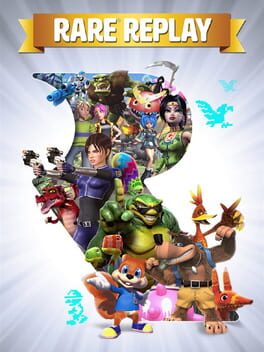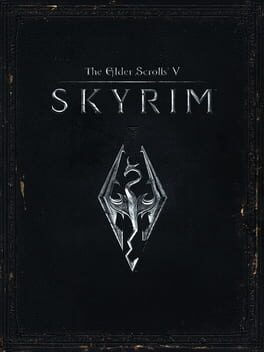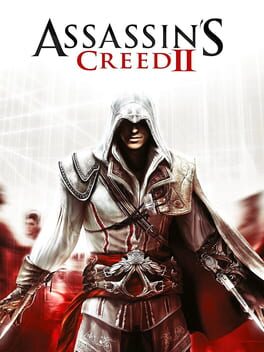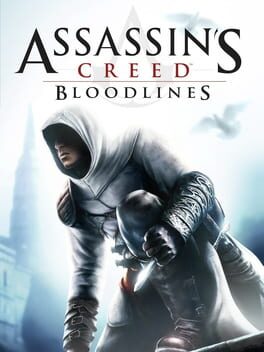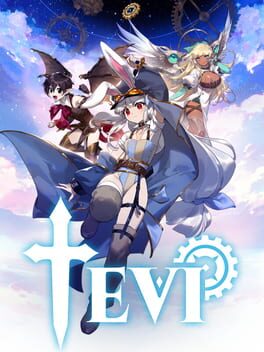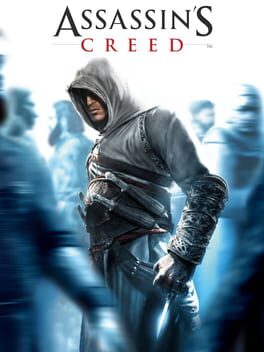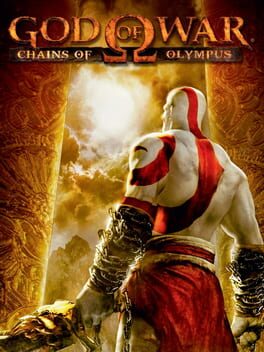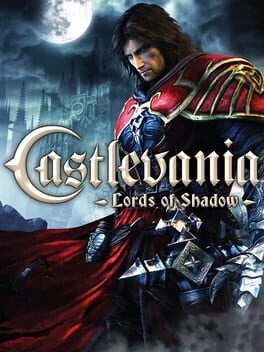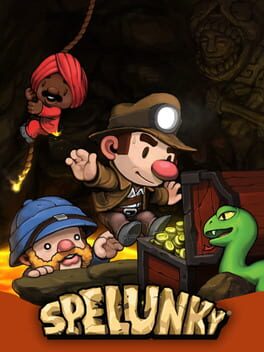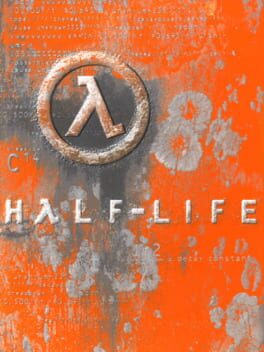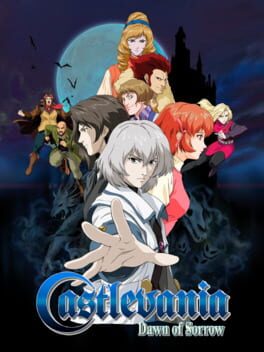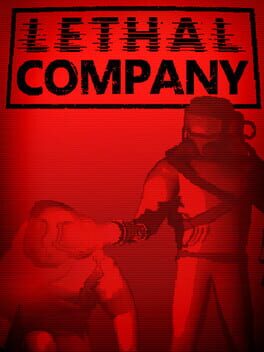Hooblashooga
2015
It's called "Rare" Replay because of all the rare achievements you'll get for merely starting each game once. Who bought this collection, yet still couldn't be bothered to sample the entire catalogue? Some people, I swear.
I had to break in my new Xbox Series X with a no-brainer: A collection that released on for the previous Xbox system, comprised of games that released anywhere between 1-4 decades ago. A handful of these are games that I've been meaning to play for years now, along with others where I feel like I might as well try them, since they all come bundled together. "Thirty games" is a bit misleading, seeing as the earlier third or so could be classified as, well, I think the British term for it is "rubbish." I appreciate that these titles have been preserved here, but most of them aren't fun for very long. They try to redeem that with "Snapshots", simple challenges with their own leaderboards. They're a fun distraction that can't distract me from the older games' archaic nature, I'm afraid.
The rest of the catalogue is so damn meaty that I have less reason to complain. Completing objectives in each game gradually provides you with a wealth of bonus content, including interviews, promotional materials, and even looks at cancelled projects. It's a really nice gesture for people who are interested in this company's history and lasting legacy.
The obvious complaint with this collection probably the lack of anything Donkey Kong. We don't ask who Rare was working for from 1994 to 2002 around here. It's a bit funny (and sad) to see their original N64 offerings with Xbox buttons injected into their graphics, along with removing any mention of Nintendo in general. Kinda surprised that they didn't include both versions of Conker, even if most purists would probably pick the N64 version any day. Some people have preferences, and others will probably cry "preservation." What's also bittersweet is how their history abruptly ends at Banjo-Kazooie: Nuts and Bolts. No comment on that game's quality (I'll give it a fair shake sometime soon), but it's definitely a downer to end their legacy on. No mention that they were enslaved into making Kinect games and Xbox Avatars after the fact, either. Maybe that one's for the best though.
I had to break in my new Xbox Series X with a no-brainer: A collection that released on for the previous Xbox system, comprised of games that released anywhere between 1-4 decades ago. A handful of these are games that I've been meaning to play for years now, along with others where I feel like I might as well try them, since they all come bundled together. "Thirty games" is a bit misleading, seeing as the earlier third or so could be classified as, well, I think the British term for it is "rubbish." I appreciate that these titles have been preserved here, but most of them aren't fun for very long. They try to redeem that with "Snapshots", simple challenges with their own leaderboards. They're a fun distraction that can't distract me from the older games' archaic nature, I'm afraid.
The rest of the catalogue is so damn meaty that I have less reason to complain. Completing objectives in each game gradually provides you with a wealth of bonus content, including interviews, promotional materials, and even looks at cancelled projects. It's a really nice gesture for people who are interested in this company's history and lasting legacy.
The obvious complaint with this collection probably the lack of anything Donkey Kong. We don't ask who Rare was working for from 1994 to 2002 around here. It's a bit funny (and sad) to see their original N64 offerings with Xbox buttons injected into their graphics, along with removing any mention of Nintendo in general. Kinda surprised that they didn't include both versions of Conker, even if most purists would probably pick the N64 version any day. Some people have preferences, and others will probably cry "preservation." What's also bittersweet is how their history abruptly ends at Banjo-Kazooie: Nuts and Bolts. No comment on that game's quality (I'll give it a fair shake sometime soon), but it's definitely a downer to end their legacy on. No mention that they were enslaved into making Kinect games and Xbox Avatars after the fact, either. Maybe that one's for the best though.
2005
Unlike Tetris, it feels like you're rarely, if ever, making substantial moves. The skill ceiling for meaningful play is significantly higher here though. It feels like you're just fucked later down the line if you don't form any "flowers" early in a game, because once you're in the later levels, the amount of different colored pieces you have to deal with makes that nigh impossible. Those flower pieces can be used for more accurate piece movement (if you're good at the game), so not having access to one late in a game limits your ability to do much of anything. Also, why is the music so haunting? It sounds like Zero has me trapped in an escape room, and the only way to leave is to match a black pearl flower. I think I'm gonna die here, please help
Skyrim is a game that you cannot avoid. It's available on damn near everything. It's not a matter of if you'll play Skyrim, it's a matter of when. As far as I can tell, this must be some rite of passage, and my time has finally come. Enter H'kage, a female Khajiit who slices and dices, strikes from the shadows, and will rob you blind if given the chance. This game brought out my inner kleptomaniac AND hoarder. Neither of those things are good for the game's save file size, but we'll get to that problem in a while. For now, it's time to embrace Bethesda's masterpiece.
The moment you escape the opening, you can go anywhere you please. See that mountain? There's probably a proper path up it somewhere, but this is Skyrim! Strafe your face up against any incline while mashing the jump button, you'll be surprised at the places you can reach. A new icon pops up on your compass? Time to take a leisurely stroll through the majestic, mountainous region of Tamriel, breathtaking from any angle. But what does one do in Skyrim? Well, it's a lot of fighting. Skyrim's combat feels like the equivalent of smashing action figures against each other, and not in the fun imaginative sense; I mean the combat truly feels like wildly smashing plastic figures against themselves. Granted, melee isn't nearly the only option at your disposal. Magic attacks didn't really do anything for me, but the healing was always nice to have on hand. A good way to tank damage if stabbing unaware bandits in the back with a dagger didn't work out.
Even if the combat is limp, my greatest takeaway from Skyrim is its sidequests. Despite the fact that I don't remember the names or faces of the people who sent me on my various quests, Skyrim did a damn good job at making the journey the memorable part, and not the destination. Almost every single cave and village I came across had something unique to experience. Sometimes I'd stumble into the lair of an alchemist breeding a nuclear spider army, other times I would find a guy pretending to be a ghost in a crypt. These little self-contained stories provide the best kind of tales to share with your friends, especially if it leads to some cool items. Needless to say, this made it all the more jarring that I thought the main quest was nothing special.
There you are, playing your high fantasy open-world game, when all of a sudden, you're the Dragonborn. You didn't ask for this. You didn't choose this, and yet, here we are. I thought the main questline of Skyrim to be boooooriiiiing. I think most of my disinterest stems from a lack of agency. Being the Dragonborn is cool enough, but it doesn't really play into anything. I just am the Dragonborn, whether I like it or not. None of your choices on the main path matter, all these important events kinda just happen around you. Fighting dragons and collecting shouts is cool, but it's not that necessary, and I rarely used them. Also, screw the Blades. I don't know why they're so pissy about the Shoutmasters on the mountain, and I am NOT killing one of the only interesting characters in the whole narrative. When people complain to the point of modding in the option to simply say "no", I think the writers officially lost the plot. I made a point to play through the main story quests before my save file got too big and whoops, I can't hide this problem any longer.
Yeah, I played Skyrim on the PS3, and as it turns out, PS3 Skyrim is arguably the worst version of the game. I got the game for Christmas, so I didn't really have a say in my platform of choice, but I'd probably have ended up getting it on PS3 just to know how people experienced Skyrim back in 2011, in its purest, unmodded form. From my point of view, Skyrim is Skyrim is Skyrim, minus the PC version, because people have modded that game to the moon and back, and I didn't want that clouding my opinion of the game. It's not "literally unplayable" on PS3, but your experience is on a time limit of sorts. Your save file size increases as you discover locations, take on more quests, and hoard more items. As your save grows bigger, load times take longer, and the game becomes buggier. Have you ever been swimming, and suddenly you stop swimming, and then you drop to the bottom and can't reach the surface? That's what actual nightmares are like, and this happened to me late in my playthrough! There were points where I passed up on exploring optional locations because I was afraid that I wouldn't be able to fulfill my self-assigned goal of finishing the main quest before the game slapped me with an infamous 10-minute loading screen or some game-breaking bugs. I never reached that point, but 11MB+ is nothing to scoff at.
Frankly, I would love to play Skyrim forever. I played it for a few weeks straight, only to feel a guilty sense of procrastination wash over me. I would play it more if I didn't set myself the "beat the main story quests" goal (and even then I got most of the trophies anyways, whoops), but I have other games I want to play. Todd will take hold of me again some other day...it's only a matter of time.
The moment you escape the opening, you can go anywhere you please. See that mountain? There's probably a proper path up it somewhere, but this is Skyrim! Strafe your face up against any incline while mashing the jump button, you'll be surprised at the places you can reach. A new icon pops up on your compass? Time to take a leisurely stroll through the majestic, mountainous region of Tamriel, breathtaking from any angle. But what does one do in Skyrim? Well, it's a lot of fighting. Skyrim's combat feels like the equivalent of smashing action figures against each other, and not in the fun imaginative sense; I mean the combat truly feels like wildly smashing plastic figures against themselves. Granted, melee isn't nearly the only option at your disposal. Magic attacks didn't really do anything for me, but the healing was always nice to have on hand. A good way to tank damage if stabbing unaware bandits in the back with a dagger didn't work out.
Even if the combat is limp, my greatest takeaway from Skyrim is its sidequests. Despite the fact that I don't remember the names or faces of the people who sent me on my various quests, Skyrim did a damn good job at making the journey the memorable part, and not the destination. Almost every single cave and village I came across had something unique to experience. Sometimes I'd stumble into the lair of an alchemist breeding a nuclear spider army, other times I would find a guy pretending to be a ghost in a crypt. These little self-contained stories provide the best kind of tales to share with your friends, especially if it leads to some cool items. Needless to say, this made it all the more jarring that I thought the main quest was nothing special.
There you are, playing your high fantasy open-world game, when all of a sudden, you're the Dragonborn. You didn't ask for this. You didn't choose this, and yet, here we are. I thought the main questline of Skyrim to be boooooriiiiing. I think most of my disinterest stems from a lack of agency. Being the Dragonborn is cool enough, but it doesn't really play into anything. I just am the Dragonborn, whether I like it or not. None of your choices on the main path matter, all these important events kinda just happen around you. Fighting dragons and collecting shouts is cool, but it's not that necessary, and I rarely used them. Also, screw the Blades. I don't know why they're so pissy about the Shoutmasters on the mountain, and I am NOT killing one of the only interesting characters in the whole narrative. When people complain to the point of modding in the option to simply say "no", I think the writers officially lost the plot. I made a point to play through the main story quests before my save file got too big and whoops, I can't hide this problem any longer.
Yeah, I played Skyrim on the PS3, and as it turns out, PS3 Skyrim is arguably the worst version of the game. I got the game for Christmas, so I didn't really have a say in my platform of choice, but I'd probably have ended up getting it on PS3 just to know how people experienced Skyrim back in 2011, in its purest, unmodded form. From my point of view, Skyrim is Skyrim is Skyrim, minus the PC version, because people have modded that game to the moon and back, and I didn't want that clouding my opinion of the game. It's not "literally unplayable" on PS3, but your experience is on a time limit of sorts. Your save file size increases as you discover locations, take on more quests, and hoard more items. As your save grows bigger, load times take longer, and the game becomes buggier. Have you ever been swimming, and suddenly you stop swimming, and then you drop to the bottom and can't reach the surface? That's what actual nightmares are like, and this happened to me late in my playthrough! There were points where I passed up on exploring optional locations because I was afraid that I wouldn't be able to fulfill my self-assigned goal of finishing the main quest before the game slapped me with an infamous 10-minute loading screen or some game-breaking bugs. I never reached that point, but 11MB+ is nothing to scoff at.
Frankly, I would love to play Skyrim forever. I played it for a few weeks straight, only to feel a guilty sense of procrastination wash over me. I would play it more if I didn't set myself the "beat the main story quests" goal (and even then I got most of the trophies anyways, whoops), but I have other games I want to play. Todd will take hold of me again some other day...it's only a matter of time.
2009
Remarkably more engaging than the first game. Kinda overstays its welcome after a certain point, but I anticipated that simply from it being a Ubisoft game. For how much I complained about "binary stealth" in my review of the previous game, I was elated to find that you can simply walk along with a crowd to blend in. It's so seamless, and it enabled one of the funnier moments of my playthrough: casually walking into the audience of my target and firing a bullet into him at close range. They never saw it coming.
The story actually left an impact on me this time, but probably for all the wrong reasons. Being a pseudo-historical recreation of sorts, there are murals hidden on major landmarks that serve as glitches in the Animus. Locating these prompts you with a puzzle to solve that unlocks a piece of "the truth". All these puzzles are a bunch of fictional nonsense, tying the conflict between templars and assassins to non-fictional figures and events throughout history. It's fuckin' silly, but it delivers on expanding the conflict that was merely alluded to in AC1: The conflict between the templars and assassins never ended, and it continues in present day.
I must be getting soft. Never would've imagined that I would be enjoying Ubislop, but here we are. That being said, I am not playing another one of these games for at least a couple of months, "Ezio Trilogy" be damned.
The story actually left an impact on me this time, but probably for all the wrong reasons. Being a pseudo-historical recreation of sorts, there are murals hidden on major landmarks that serve as glitches in the Animus. Locating these prompts you with a puzzle to solve that unlocks a piece of "the truth". All these puzzles are a bunch of fictional nonsense, tying the conflict between templars and assassins to non-fictional figures and events throughout history. It's fuckin' silly, but it delivers on expanding the conflict that was merely alluded to in AC1: The conflict between the templars and assassins never ended, and it continues in present day.
I must be getting soft. Never would've imagined that I would be enjoying Ubislop, but here we are. That being said, I am not playing another one of these games for at least a couple of months, "Ezio Trilogy" be damned.
A quaint conversion of Assassin's Creed to the PSP. Segmenting a big open world into smaller, more contained districts is actually pretty smart, and doesn't really compromise the game's structure. Altair controls like he's desperately holding on until he can find a restroom to relieve himself in, but I'd say that captures the spirit of Assassin's Creed 1's controls pretty well.
Now, I get bonuses in AC2 for playing this game, let's see what those are...hoooooooly shiiiiiiiiiiit
Now, I get bonuses in AC2 for playing this game, let's see what those are...hoooooooly shiiiiiiiiiiit
2023
From the creators of Rabi-Ribi comes a game that you can safely play without fear of someone looking over your shoulder and wondering what's wrong with you (probably)!
TEVI plays pretty similarly to Rabi-Ribi, with a bigger emphasis on melee combat. Tevi's got some pretty versatile moves you can weave in and out of, complemented a side of simplified ranged combat. Supplementing all of this are "sigils", an expansion on Rabi-Ribi's badges. When I say "expansion", I mean that there's an absurd amount of these to collect. The sheer quantity of sigils kinda dilutes the sensation of finding another one hidden in the overworld, but each one tweaks the combat mechanics in a tiny way, which adds up in a big way, and can change your entire playstyle. Good combat would mean nothing without great bosses, and TEVI doesn't disappoint there either. I do think the game is on the easier side though. I didn't die once on normal difficulty, so here's my PSA that you can change the difficulty at any point by having Tevi sleep in her bed back at the Oasis.
I wish I had more good to say about TEVI, but this game has a serious structural problem: its nonlinearity is fake. I spent a lot of time backtracking and exploring in TEVI, only to realize there's like, a single powerup I can grab before I hit the brick wall of "go to the objective please". There's almost never anything meaningful to discover off the beaten path because all the bosses are fought on the linear plot path, and you're barred access to the upgrades that would give you access to new areas until you beat those bosses. The game does offer a "free roam" mode when starting a new game, but that hits you with the exact opposite side of the spectrum: exploration and boss fighting with no real direction. Ideally, you'd want to meet in the middle somewhere, something that Rabi-Ribi already excelled at.
The story itself is fine. I hate to shoot it down for not catching my barely-a-zoomer attention span, but the game loves to infodump on and on about its world, society, past, present, races, and whatever. It became exhausting to read very quickly, and I don't even think it earns a lot of its emotional moments either. So many points where a character dips out of the story for several chapters after being introduced (I'm looking at you, Sable's brother). The best parts were where the characters bounced off each other with charming banter, something that is pretty infrequent after the first few chapters of the game.
The focus on linear plot progression rears its head in other places too, like the map. For some ungodly reason, its default mode focuses on current objectives, and not something like individual areas. You have to press a button to freely scroll the map (otherwise you'll just be scrolling through your current objectives), and you can't even add markers for points of interest from this menu. No, you have to be standing in the room you want to mark, open up your quick-inventory, and add the marker there (same for removing markers!). It's just weirdly inconvenient for no discernable reason. Item totals are measured between loading zones and not by each area too. What I mean is that areas not separated by a fadeout have their item totals lumped together, which is extremely inconvenient for anyone who wants to clear out the map. Pretty sure Rabi-Ribi did this right, what's TEVI's excuse?
The opening statement was meant as a joke, but in all honesty, while TEVI has its own strengths, I do vastly prefer Rabi-Ribi overall. There's a minigame called "Rabi Smash" in one of TEVI's towns, and playing it provided a brief reprieve of charming, non-serious bunnygirl mayhem. And that's just where I feel TEVI falters. They really tried for something more serious, but it feels like a mismatch for this type of game. If anything, TEVI inadvertently elevated my opinion of Rabi-Ribi. Maybe that says more about my personal preferences than it does about the games in question. (And before you ask, no, it's not that I'm into bunnygirls. Good guess though!)
TEVI plays pretty similarly to Rabi-Ribi, with a bigger emphasis on melee combat. Tevi's got some pretty versatile moves you can weave in and out of, complemented a side of simplified ranged combat. Supplementing all of this are "sigils", an expansion on Rabi-Ribi's badges. When I say "expansion", I mean that there's an absurd amount of these to collect. The sheer quantity of sigils kinda dilutes the sensation of finding another one hidden in the overworld, but each one tweaks the combat mechanics in a tiny way, which adds up in a big way, and can change your entire playstyle. Good combat would mean nothing without great bosses, and TEVI doesn't disappoint there either. I do think the game is on the easier side though. I didn't die once on normal difficulty, so here's my PSA that you can change the difficulty at any point by having Tevi sleep in her bed back at the Oasis.
I wish I had more good to say about TEVI, but this game has a serious structural problem: its nonlinearity is fake. I spent a lot of time backtracking and exploring in TEVI, only to realize there's like, a single powerup I can grab before I hit the brick wall of "go to the objective please". There's almost never anything meaningful to discover off the beaten path because all the bosses are fought on the linear plot path, and you're barred access to the upgrades that would give you access to new areas until you beat those bosses. The game does offer a "free roam" mode when starting a new game, but that hits you with the exact opposite side of the spectrum: exploration and boss fighting with no real direction. Ideally, you'd want to meet in the middle somewhere, something that Rabi-Ribi already excelled at.
The story itself is fine. I hate to shoot it down for not catching my barely-a-zoomer attention span, but the game loves to infodump on and on about its world, society, past, present, races, and whatever. It became exhausting to read very quickly, and I don't even think it earns a lot of its emotional moments either. So many points where a character dips out of the story for several chapters after being introduced (I'm looking at you, Sable's brother). The best parts were where the characters bounced off each other with charming banter, something that is pretty infrequent after the first few chapters of the game.
The focus on linear plot progression rears its head in other places too, like the map. For some ungodly reason, its default mode focuses on current objectives, and not something like individual areas. You have to press a button to freely scroll the map (otherwise you'll just be scrolling through your current objectives), and you can't even add markers for points of interest from this menu. No, you have to be standing in the room you want to mark, open up your quick-inventory, and add the marker there (same for removing markers!). It's just weirdly inconvenient for no discernable reason. Item totals are measured between loading zones and not by each area too. What I mean is that areas not separated by a fadeout have their item totals lumped together, which is extremely inconvenient for anyone who wants to clear out the map. Pretty sure Rabi-Ribi did this right, what's TEVI's excuse?
The opening statement was meant as a joke, but in all honesty, while TEVI has its own strengths, I do vastly prefer Rabi-Ribi overall. There's a minigame called "Rabi Smash" in one of TEVI's towns, and playing it provided a brief reprieve of charming, non-serious bunnygirl mayhem. And that's just where I feel TEVI falters. They really tried for something more serious, but it feels like a mismatch for this type of game. If anything, TEVI inadvertently elevated my opinion of Rabi-Ribi. Maybe that says more about my personal preferences than it does about the games in question. (And before you ask, no, it's not that I'm into bunnygirls. Good guess though!)
2007
Ubisoft is marketing their latest Assassin's Creed games as "a return to classic AC". Well, I don't know what that means, and I'm not about to trust Modern Ubisoft to do literally anything right. The only way I'm starting this franchise is at the very beginning, for better or for worse.
I'm sure the twist is common knowledge to literally anyone who owned a 360/PS3 in 2007, but I was genuinely taken aback by the actual premise of this game. Nothing ever gave me the idea that I would be diving into the DNA of a mild-mannered American, taking control of his his ancestor's memories, all done through a machine known as the "Animus". Basically, Desmond's scientific captors insist that he comes from a long line of assassins, and there's clearly something tucked away in his long-gone relative's memories that they need. Seeing as Desmond is reliving the events of his assassin ancestor in the middle east, Altair very much sounds like a modern-day American, which is pretty jarring when everyone around him sounds perfectly natural, given the setting. It's like he's a tourist in his home country. Still, the Animus is a really cool framing device for the events that unfold, and it kinda stole the entire show for me. I was more eager to escape the assassin simulation and see what new stuff I could find in the cold, cramped, and claustrophobic lab. The developments that occur between the long bouts of assassin gameplay were the carrot-on-a-stick that kept me going up until the end, no matter how repetitive, tedious, and annoying the game got.
Ah, fighting, hiding, and climbing; the three pillars of assassin-ing.
Controlling Altair feels like maneuvering a playable bag of bricks, which is decently realistic, in a sense. That's what they were going for in many aspects of this game, realism. NPCs and guards interact with you and each other in appropriate ways, even with dozens of them walking the streets at any given time. Realistic real-world locations, copious amounts of mocap, it's all here. Altair can't swim though. Guess they forgot to add that feature to the Animus, I'm sure they'll add it in a firmware update or something.
This game marks the first time that I've been exposed to the Ubisoft Tower, the genuine article. What do they do? Well after you climb it, you press a button, the camera pans around, one or two points of interest are marked on your map, and not much else. "Not much else" is a real running theme with this one. Climbing anything can be obnoxious due to a variety of reasons: unclear footholds, unknown jumping distance, and even Altair just not cooperating. I've been spoiled by Sucker Punch's offerings (Sly Cooper/Infamous), but I feel like an action you're going to be doing all game should be enjoyable at the bare minimum.
The objectives themselves are nothing to write home about. You'll have seen them all before you clean out your second area. They can be mind-numbingly easy, like eavesdropping on a conversation, inconsistently difficult, like pickpocketing a guy, or my absolute least favorite, the ones where you have to eliminate multiple targets without being discovered. The fact that it's extremely easy to be caught during these is one thing, that's an instant fail state. The part that gets me is that there's no instant retry. You have to lose your pursuers, backtrack to where you started the mission originally, wait through the mission-giver's 20-second spiel, and then you get to retry. Sometimes I even just let the guards kill me, because I know the last checkpoint the game set was right where I started the mission. May as well cut out all that nonsense in favor of putting the controller down. Completing at least a few of these menial tasks is mandatory, as they give you information that may or may not be critical in making sure your assassination goes off without a hitch. It can be interesting to ogle and plan around this knowledge, but nothing really beat the "fuck it, we'll do it live" approach I usually brought to the scene. They try to build it up like a big heist, but it's working within the incredibly limited constraints of AC1's gameplay variety.
The combat is middling for entirely different reasons. Mechanics such as "combo kill" are tied to timing your button presses in a really unclear rhythm. Aside from yeeting people off rooftops, I never really found a good use for grabs. None of it really matters by the time you unlock a counter maneuver, which you can use to take out entire small armies with little effort. They also seem to run away in terror after you kill enough of them in a single encounter. Maybe it's designed that way to give the player some room to breathe, or maybe it's like that to prevent more corpses from piling up and occupying precious PS3 processing power.
Fighting isn't your only option, and that brings us to the stealth. Escaping guards requires two things: breaking line of sight, and finding a hiding spot before any other guards see you. Even if you flee to the rooftops, the guards are relentless, have eagle eyesight, and are omnipresent. Shaking these guys is way harder than it has any right to be, I turn a sharp corner like the game wants me to, try to find a bench to sit on, and there's just another guard there anyways. I climb up a building only to be spotted by the guards stationed there anyways. Again, I frequently found letting Altair die dishonorably to be the more effective option.
Outside of combat, you can "blend" by pretending to be a scholar by holding X, which is basically a free pass through most obstacles, at the cost of minimum movement speed. Perhaps the technology wasn't quite there yet, but Assassin's Creed should fit the bill for being a social stealth game, where you hide in plain sight amongst the people. The groups of scholars you can blend with are getting there, but they're a binary choice; you're blending with them, or you aren't. Social stealth is an idea Ubisoft didn't try again until early builds of Splinter Cell: Conviction, which then turned into Watch Dogs, which didn't even deliver on that aspect anyways. Did I mention that modern Ubisoft sucks?
At the end of it all, I'm not quite sure what Assassin's Creed even is. I don't feel stealthy, so it isn't a stealth game. It's "open world" only in the sense that you can approach your objective in whatever route you see fit. It's a collectathon if you're a FREAK and think collecting the flags isn't a completely pointless waste of time. For 2007 though, open world/sandbox games weren't exactly plentiful. The genre had room to grow, and I think it's commendable that Ubisoft Montreal built a sufficient skeleton to build upon and support the series for over a decade and counting, even if it meant their fate as a studio was sealed.
I'm sure the twist is common knowledge to literally anyone who owned a 360/PS3 in 2007, but I was genuinely taken aback by the actual premise of this game. Nothing ever gave me the idea that I would be diving into the DNA of a mild-mannered American, taking control of his his ancestor's memories, all done through a machine known as the "Animus". Basically, Desmond's scientific captors insist that he comes from a long line of assassins, and there's clearly something tucked away in his long-gone relative's memories that they need. Seeing as Desmond is reliving the events of his assassin ancestor in the middle east, Altair very much sounds like a modern-day American, which is pretty jarring when everyone around him sounds perfectly natural, given the setting. It's like he's a tourist in his home country. Still, the Animus is a really cool framing device for the events that unfold, and it kinda stole the entire show for me. I was more eager to escape the assassin simulation and see what new stuff I could find in the cold, cramped, and claustrophobic lab. The developments that occur between the long bouts of assassin gameplay were the carrot-on-a-stick that kept me going up until the end, no matter how repetitive, tedious, and annoying the game got.
Ah, fighting, hiding, and climbing; the three pillars of assassin-ing.
Controlling Altair feels like maneuvering a playable bag of bricks, which is decently realistic, in a sense. That's what they were going for in many aspects of this game, realism. NPCs and guards interact with you and each other in appropriate ways, even with dozens of them walking the streets at any given time. Realistic real-world locations, copious amounts of mocap, it's all here. Altair can't swim though. Guess they forgot to add that feature to the Animus, I'm sure they'll add it in a firmware update or something.
This game marks the first time that I've been exposed to the Ubisoft Tower, the genuine article. What do they do? Well after you climb it, you press a button, the camera pans around, one or two points of interest are marked on your map, and not much else. "Not much else" is a real running theme with this one. Climbing anything can be obnoxious due to a variety of reasons: unclear footholds, unknown jumping distance, and even Altair just not cooperating. I've been spoiled by Sucker Punch's offerings (Sly Cooper/Infamous), but I feel like an action you're going to be doing all game should be enjoyable at the bare minimum.
The objectives themselves are nothing to write home about. You'll have seen them all before you clean out your second area. They can be mind-numbingly easy, like eavesdropping on a conversation, inconsistently difficult, like pickpocketing a guy, or my absolute least favorite, the ones where you have to eliminate multiple targets without being discovered. The fact that it's extremely easy to be caught during these is one thing, that's an instant fail state. The part that gets me is that there's no instant retry. You have to lose your pursuers, backtrack to where you started the mission originally, wait through the mission-giver's 20-second spiel, and then you get to retry. Sometimes I even just let the guards kill me, because I know the last checkpoint the game set was right where I started the mission. May as well cut out all that nonsense in favor of putting the controller down. Completing at least a few of these menial tasks is mandatory, as they give you information that may or may not be critical in making sure your assassination goes off without a hitch. It can be interesting to ogle and plan around this knowledge, but nothing really beat the "fuck it, we'll do it live" approach I usually brought to the scene. They try to build it up like a big heist, but it's working within the incredibly limited constraints of AC1's gameplay variety.
The combat is middling for entirely different reasons. Mechanics such as "combo kill" are tied to timing your button presses in a really unclear rhythm. Aside from yeeting people off rooftops, I never really found a good use for grabs. None of it really matters by the time you unlock a counter maneuver, which you can use to take out entire small armies with little effort. They also seem to run away in terror after you kill enough of them in a single encounter. Maybe it's designed that way to give the player some room to breathe, or maybe it's like that to prevent more corpses from piling up and occupying precious PS3 processing power.
Fighting isn't your only option, and that brings us to the stealth. Escaping guards requires two things: breaking line of sight, and finding a hiding spot before any other guards see you. Even if you flee to the rooftops, the guards are relentless, have eagle eyesight, and are omnipresent. Shaking these guys is way harder than it has any right to be, I turn a sharp corner like the game wants me to, try to find a bench to sit on, and there's just another guard there anyways. I climb up a building only to be spotted by the guards stationed there anyways. Again, I frequently found letting Altair die dishonorably to be the more effective option.
Outside of combat, you can "blend" by pretending to be a scholar by holding X, which is basically a free pass through most obstacles, at the cost of minimum movement speed. Perhaps the technology wasn't quite there yet, but Assassin's Creed should fit the bill for being a social stealth game, where you hide in plain sight amongst the people. The groups of scholars you can blend with are getting there, but they're a binary choice; you're blending with them, or you aren't. Social stealth is an idea Ubisoft didn't try again until early builds of Splinter Cell: Conviction, which then turned into Watch Dogs, which didn't even deliver on that aspect anyways. Did I mention that modern Ubisoft sucks?
At the end of it all, I'm not quite sure what Assassin's Creed even is. I don't feel stealthy, so it isn't a stealth game. It's "open world" only in the sense that you can approach your objective in whatever route you see fit. It's a collectathon if you're a FREAK and think collecting the flags isn't a completely pointless waste of time. For 2007 though, open world/sandbox games weren't exactly plentiful. The genre had room to grow, and I think it's commendable that Ubisoft Montreal built a sufficient skeleton to build upon and support the series for over a decade and counting, even if it meant their fate as a studio was sealed.
"THAT WASN'T CASTLEVANIA!
THAT WAS JUST A GOD OF WAR RIPOFF!"
Nah, but in all seriousness, this game really highlights MercurySteam's strengths as a studio: insane art direction/presentation, and impressive spectacle. It's even got a pretty bonkers final twist in the story. It's nice to see them get their start as a studio, since they'd eventually take their talents and go on to do great things, like bring 2D Metroid out of a two decade-long coma.
Welp, that's all the good I can muster; Time to let out all my frustrations.
I can barely remember a single piece of music from this game. It's all generic orchestral mumbo-jumbo that you've heard literally anywhere else before. The only parts I remember are the ones that played over and over again, forcing me to realize that they frequently reused what few tracks they had in the first place. There are certain sections of the game where characters will spout the same voice clips at you ad nauseum. It got so bad that I had to disable the voices for those sections just to retain whatever sanity I had left. There's also an eternal "shaky cam", as if the whole game is being filmed by a shell-shocked war veteran. It's like that even when you're doing nothing.
This game just doesn't understand action combat. Enemies are damage sponges, even on the easiest difficulty. I think that's to encourage you to use the parry move, but enemies don't telegraph their attacks well enough to make that viable. Half the time I don't even know if I can parry a move or if it's considered unblockable. Even when I do pull the parry off, the extra damage feels minimal, and it has the visual impact of a fart with extra reverb. I'm not even sure it does that much more damage than hammering away at the buttons normally either. It's a god damn mess.
Puzzles are also strewn about, and they're either braindead busywork or outright nonsense. Even after you get a new power, its utility is marred by unintuitive controls, reliance on your limited light/dark magic meters, and unclear signposting on when or where they expect you to use it. One minute you'll be touching wall panels with the appropriate magic like it's paint-by-numbers, and then there'll be a FICTIONAL BOARD GAME in one chapter that's somewhat luck-based and has unclear rules, bringing your entire experience to a screeching halt.
This game also happens to approach replayability in the worst way possible with its "trials". After (and only after) you finish a chapter, a trial will be active the next time you play that chapter. They range from tedious tasks like "kill 50 goblins", to tasks with no room for error, like "defeat the ice titan in 1:30". The trial also won't be considered complete unless you go ahead and finish the chapter you're playing. You're allowed to leave via the world map and keep your upgrades when hunting for collectibles, no clue why the trials are treated differently. Completing these trials gets you...absolutely nothing! Well, nothing except a handful of achievements and a vague sense of regret. You don't even get more experience points for completing these, and there's no way you'll have every single combo bought after a single playthrough (the last few are prohibitively expensive). You also don't gain more EXP by playing on higher difficulties, which begs the question: Aside from 100% completion, what the hell is the point of doing all this crap?
The most damning stake in this game's coffin is that it just doesn't feel like "Castlevania". Lords of Shadow crosses over into medieval territory, and while a lot of its iconography runs adjacent to Castlevania (skeletons, reapers, goblins, etc), it's missing a very crucial element: gothic horror. Hell, there's no Dracula in this game whatsoever. Well, no Dracula until MercurySteam teased the next game in the post-credits scene. I hope the next game delivers on that bombshell, because this game already feels like a distant memory.
THAT WAS JUST A GOD OF WAR RIPOFF!"
Nah, but in all seriousness, this game really highlights MercurySteam's strengths as a studio: insane art direction/presentation, and impressive spectacle. It's even got a pretty bonkers final twist in the story. It's nice to see them get their start as a studio, since they'd eventually take their talents and go on to do great things, like bring 2D Metroid out of a two decade-long coma.
Welp, that's all the good I can muster; Time to let out all my frustrations.
I can barely remember a single piece of music from this game. It's all generic orchestral mumbo-jumbo that you've heard literally anywhere else before. The only parts I remember are the ones that played over and over again, forcing me to realize that they frequently reused what few tracks they had in the first place. There are certain sections of the game where characters will spout the same voice clips at you ad nauseum. It got so bad that I had to disable the voices for those sections just to retain whatever sanity I had left. There's also an eternal "shaky cam", as if the whole game is being filmed by a shell-shocked war veteran. It's like that even when you're doing nothing.
This game just doesn't understand action combat. Enemies are damage sponges, even on the easiest difficulty. I think that's to encourage you to use the parry move, but enemies don't telegraph their attacks well enough to make that viable. Half the time I don't even know if I can parry a move or if it's considered unblockable. Even when I do pull the parry off, the extra damage feels minimal, and it has the visual impact of a fart with extra reverb. I'm not even sure it does that much more damage than hammering away at the buttons normally either. It's a god damn mess.
Puzzles are also strewn about, and they're either braindead busywork or outright nonsense. Even after you get a new power, its utility is marred by unintuitive controls, reliance on your limited light/dark magic meters, and unclear signposting on when or where they expect you to use it. One minute you'll be touching wall panels with the appropriate magic like it's paint-by-numbers, and then there'll be a FICTIONAL BOARD GAME in one chapter that's somewhat luck-based and has unclear rules, bringing your entire experience to a screeching halt.
This game also happens to approach replayability in the worst way possible with its "trials". After (and only after) you finish a chapter, a trial will be active the next time you play that chapter. They range from tedious tasks like "kill 50 goblins", to tasks with no room for error, like "defeat the ice titan in 1:30". The trial also won't be considered complete unless you go ahead and finish the chapter you're playing. You're allowed to leave via the world map and keep your upgrades when hunting for collectibles, no clue why the trials are treated differently. Completing these trials gets you...absolutely nothing! Well, nothing except a handful of achievements and a vague sense of regret. You don't even get more experience points for completing these, and there's no way you'll have every single combo bought after a single playthrough (the last few are prohibitively expensive). You also don't gain more EXP by playing on higher difficulties, which begs the question: Aside from 100% completion, what the hell is the point of doing all this crap?
The most damning stake in this game's coffin is that it just doesn't feel like "Castlevania". Lords of Shadow crosses over into medieval territory, and while a lot of its iconography runs adjacent to Castlevania (skeletons, reapers, goblins, etc), it's missing a very crucial element: gothic horror. Hell, there's no Dracula in this game whatsoever. Well, no Dracula until MercurySteam teased the next game in the post-credits scene. I hope the next game delivers on that bombshell, because this game already feels like a distant memory.
2001
On my Twitter account, I mused about not having the drive to write about an in-depth RPG with a lot of ground to cover. Welp, as it turns out, my brain likes putting my thoughts into words whether I like it or not. So here, a very disjointed set of points on what I thought of FFX, my first Final Fantasy.
STORY THOUGHTS:
People believe in the Fayth because they desire something to believe in, to work towards and better themselves. They work to absolve themselves of Sin, even if it hasn't affected them personally. Even if they're only inheriting the Sin of the generation before them.
That's what I find so fascinating about Tidus's presence in the story. He has no stake in these preconcieved notions, and while his actions are frequently impulsive and self-indulgent, he's only doing what he believes is right. From what I've inferred, I think Tidus gets a bad rap. He can be a bit obnoxious with how energetic he is (not helped by his VA also being responsible for voicing Johnny Test), but it's juxtaposed with how he gives a retrospective monologue to the player about what he's thinking. It helps me understand him better, and form a strong emotional connection.
People joke about Wakka being racist (which he totally is lmao), but being completely devout can give someone tunnel vision to other perspectives; moreso when there's already bad blood from previous experiences. He gets his comeuppance though; the man has his entire worldview overkilled multiple times over the course of Yuna's pilgrimage. Cut him some slack.
Auron goes further than being a simple mentor figure by having a personal history with Tidus's old man, having been on the pilgrimage that brought the previous Calm. He knows this world's history, he was a part of it. He also hits enemies like a truck. Seeking out the holo-spheres he left behind gives him, Jecht, and Braska some much-needed screen time. This is particularly true for Jecht, who feels particularly underdeveloped if you don't see his spheres (most of which I didn't see until I did a much shorter "victory lap" playthrough on my Vita).
Yuna has the strongest resolve out of anyone in the whole cast (as far as I'm concerned, this is her story). Which is why it hurt to see her gradually being swayed by Tidus's ideals. As she marches towards a fate that she inherited from her father, she doesn't have the heart to tell Tidus what awaits her at journey's end. Tidus gives her the desire to protect the people closest to her, which only makes the prospect of letting go more difficult.
Rikku and the Al Bhed are an interesting case of worshipping the same fayth and retaining similar values, but approaching those beliefs in a way that seems blasphemous to everyone else. They insist on using the forbidden Machina, tools that supposedly brought Sin into their world to begin with. They seek a way forward that's not tied to the teachings, as opposed to the Guado, who just want this cycle to continue forever.
On the topic of the Guado, I wish that Seymour felt like more of an actual character. He refuses to die so often that he reached "cartoon villain" status pretty quickly, which overwrote the diplomatic perspective of keeping peace in Spira. The idea that Yuna marrying Seymour could being peace, no matter how performative, is an interesting topic that doesn't get dwelled on for very long due to Seymour being a power-hungry creepo.
I don't remember much about Lulu and Kimarhi. The latter doesn't get too much development until near the very end of the game, and the former just comes off as "the adult in the room". Lulu is a top-tier design though. Yes, the excessive quantity of belts is completely necessary. We do not question Nomura's vision in this household.
AS A GAME:
-Yuna is my favorite character, Summoner is up there as one of my favorite RPG classes I've ever experienced. Building up Aeon overdrive meters and unleashing them one after another is a really cheap tactic that I used to cheese a boss or two, but I'm also really happy that the game gives you the freedom to just do that.
On the opposite end of the spectrum, I'm so sorry Kimarhi, but I found no use for you whatsoever during my journey. Maybe you're better after your entire sphere grid has been filled, but that wasn't happening anytime soon.
-Being able to quickswap between characters on your turn opens the door to a cavalcade of creative strategies, and works phenomenally with this game's role-based combat/enemy matchups.
-I feel mixed on the Sphere Grid system. I'm pretty much used to having RPGs dole out the stats for me when I level up. It takes a while, but after a certain point, the beauty of the sphere grid begins to shine through. As long as you have the right resources, the game basically gives you the opportunity to branch off and build characters however you want. Each character is initially designed to fit into a certain role, but it can be fun and useful to have characters acquire skills that they wouldn't have otherwise. But god damn, you spend a lot of time just manually selecting every little thing on the board. This is a cool twist on levelling up, and yet I don't think I want to ever see it again outside of this game.
-I like the dynamic camera angles of the battles. I see what they did there when they sometimes frame it like a classic FF battle. That being said, constantly changing camera angles also cause the selection controls to constantly change. I'm constantly having to guess whether pushing a certain direction is going to move to another enemy or highlight my party members instead. Drove me absolutely insane for all of my 55 hour playthrough and beyond.
-This has been a constant since their PS1 FMV days, but Square's CGI team is fucking cracked. The humans can look a tad uncanny, but the environmental design inside and outside of cutscenes is nothing short of timeless. It also rules how they near-seamlessly swap between in-engine gameplay and FMVs for certain scenes. Segments like them flying in on the airship to crash the wedding at Bevelle will always make my jaw hit the floor.
-I love what Blitzball represents story-wise. I've never been a big sports guy (being required to play pep band in high school can do that to you), but having a pasttime that lets people of different backgrounds put aside their differences for the sake of friendly competition is good, especially when it helps the people of Spira take their minds off their woes.
HOWEVER.
FFX introduces Blitzball with a (thankfully skippable) infodump tutorial, only to make your first match one that's almost unwinnable by design. That's one of the worst impressions left on me by, well, anything. That's not even taking into consideration the long stretch of non-Blitzball gameplay between the tutorial and actually playing said real match. You can play it at almost any save point, including right after Sin wipes out an entire army of Yevon, bodies still toasty on the beach! Have some tact, FFX! Needless to say, I didn't touch Blitzball once after its introduction on my initial playthrough. At least the music goes pretty hard.
-The Cloister of Trials sections just kinda suck. Slow trial-and-error puzzle solving using bullshit logic. Just a lot of putting balls to the walls. I sure do love looking up video guides for things like this, only to see view counts as high as 600k on the more obtuse ones.
MISCELLANEOUS THOUGHTS
-I'm glad I played the NTSC PS2 release because getting blocked off or blindsided by superbosses at every turn during the postgame in the PAL/Remaster versions of the game actually sounds like hell.
-Love the coastal world design. Personal favorite area has to be Lightning Plains, partly for the music, and partly because I think its gimmick is funny. (No, I'm not dodging 200 lightning bolts in a row) Macalania Woods is probably a very close second.
-Collecting the Al Bhed Primers and gradually being able to fill in the blanks of what the Al Bhed are saying is extremely cool. It nails that feeling of being a stranger in Spira really early on too, since a group of Al Bhed are the first humans you meet.
-For how hard it's been memed on the internet, discovering that the "Tidus laughing" scene is actually really emotional was a nice surprise. Even if I do still like it as a meme, without context.
-No one in this game says "Tidus" out loud, although there is a canon pronunciation. I prefer "tide-us", simply because most of FFX's locales are coastal or aquatic, I think it fits quite nicely. If you call him "tee-dus" then I'm gonna sacrifice you to become the next Final Aeon.
STORY THOUGHTS:
People believe in the Fayth because they desire something to believe in, to work towards and better themselves. They work to absolve themselves of Sin, even if it hasn't affected them personally. Even if they're only inheriting the Sin of the generation before them.
That's what I find so fascinating about Tidus's presence in the story. He has no stake in these preconcieved notions, and while his actions are frequently impulsive and self-indulgent, he's only doing what he believes is right. From what I've inferred, I think Tidus gets a bad rap. He can be a bit obnoxious with how energetic he is (not helped by his VA also being responsible for voicing Johnny Test), but it's juxtaposed with how he gives a retrospective monologue to the player about what he's thinking. It helps me understand him better, and form a strong emotional connection.
People joke about Wakka being racist (which he totally is lmao), but being completely devout can give someone tunnel vision to other perspectives; moreso when there's already bad blood from previous experiences. He gets his comeuppance though; the man has his entire worldview overkilled multiple times over the course of Yuna's pilgrimage. Cut him some slack.
Auron goes further than being a simple mentor figure by having a personal history with Tidus's old man, having been on the pilgrimage that brought the previous Calm. He knows this world's history, he was a part of it. He also hits enemies like a truck. Seeking out the holo-spheres he left behind gives him, Jecht, and Braska some much-needed screen time. This is particularly true for Jecht, who feels particularly underdeveloped if you don't see his spheres (most of which I didn't see until I did a much shorter "victory lap" playthrough on my Vita).
Yuna has the strongest resolve out of anyone in the whole cast (as far as I'm concerned, this is her story). Which is why it hurt to see her gradually being swayed by Tidus's ideals. As she marches towards a fate that she inherited from her father, she doesn't have the heart to tell Tidus what awaits her at journey's end. Tidus gives her the desire to protect the people closest to her, which only makes the prospect of letting go more difficult.
Rikku and the Al Bhed are an interesting case of worshipping the same fayth and retaining similar values, but approaching those beliefs in a way that seems blasphemous to everyone else. They insist on using the forbidden Machina, tools that supposedly brought Sin into their world to begin with. They seek a way forward that's not tied to the teachings, as opposed to the Guado, who just want this cycle to continue forever.
On the topic of the Guado, I wish that Seymour felt like more of an actual character. He refuses to die so often that he reached "cartoon villain" status pretty quickly, which overwrote the diplomatic perspective of keeping peace in Spira. The idea that Yuna marrying Seymour could being peace, no matter how performative, is an interesting topic that doesn't get dwelled on for very long due to Seymour being a power-hungry creepo.
I don't remember much about Lulu and Kimarhi. The latter doesn't get too much development until near the very end of the game, and the former just comes off as "the adult in the room". Lulu is a top-tier design though. Yes, the excessive quantity of belts is completely necessary. We do not question Nomura's vision in this household.
AS A GAME:
-Yuna is my favorite character, Summoner is up there as one of my favorite RPG classes I've ever experienced. Building up Aeon overdrive meters and unleashing them one after another is a really cheap tactic that I used to cheese a boss or two, but I'm also really happy that the game gives you the freedom to just do that.
On the opposite end of the spectrum, I'm so sorry Kimarhi, but I found no use for you whatsoever during my journey. Maybe you're better after your entire sphere grid has been filled, but that wasn't happening anytime soon.
-Being able to quickswap between characters on your turn opens the door to a cavalcade of creative strategies, and works phenomenally with this game's role-based combat/enemy matchups.
-I feel mixed on the Sphere Grid system. I'm pretty much used to having RPGs dole out the stats for me when I level up. It takes a while, but after a certain point, the beauty of the sphere grid begins to shine through. As long as you have the right resources, the game basically gives you the opportunity to branch off and build characters however you want. Each character is initially designed to fit into a certain role, but it can be fun and useful to have characters acquire skills that they wouldn't have otherwise. But god damn, you spend a lot of time just manually selecting every little thing on the board. This is a cool twist on levelling up, and yet I don't think I want to ever see it again outside of this game.
-I like the dynamic camera angles of the battles. I see what they did there when they sometimes frame it like a classic FF battle. That being said, constantly changing camera angles also cause the selection controls to constantly change. I'm constantly having to guess whether pushing a certain direction is going to move to another enemy or highlight my party members instead. Drove me absolutely insane for all of my 55 hour playthrough and beyond.
-This has been a constant since their PS1 FMV days, but Square's CGI team is fucking cracked. The humans can look a tad uncanny, but the environmental design inside and outside of cutscenes is nothing short of timeless. It also rules how they near-seamlessly swap between in-engine gameplay and FMVs for certain scenes. Segments like them flying in on the airship to crash the wedding at Bevelle will always make my jaw hit the floor.
-I love what Blitzball represents story-wise. I've never been a big sports guy (being required to play pep band in high school can do that to you), but having a pasttime that lets people of different backgrounds put aside their differences for the sake of friendly competition is good, especially when it helps the people of Spira take their minds off their woes.
HOWEVER.
FFX introduces Blitzball with a (thankfully skippable) infodump tutorial, only to make your first match one that's almost unwinnable by design. That's one of the worst impressions left on me by, well, anything. That's not even taking into consideration the long stretch of non-Blitzball gameplay between the tutorial and actually playing said real match. You can play it at almost any save point, including right after Sin wipes out an entire army of Yevon, bodies still toasty on the beach! Have some tact, FFX! Needless to say, I didn't touch Blitzball once after its introduction on my initial playthrough. At least the music goes pretty hard.
-The Cloister of Trials sections just kinda suck. Slow trial-and-error puzzle solving using bullshit logic. Just a lot of putting balls to the walls. I sure do love looking up video guides for things like this, only to see view counts as high as 600k on the more obtuse ones.
MISCELLANEOUS THOUGHTS
-I'm glad I played the NTSC PS2 release because getting blocked off or blindsided by superbosses at every turn during the postgame in the PAL/Remaster versions of the game actually sounds like hell.
-Love the coastal world design. Personal favorite area has to be Lightning Plains, partly for the music, and partly because I think its gimmick is funny. (
-Collecting the Al Bhed Primers and gradually being able to fill in the blanks of what the Al Bhed are saying is extremely cool. It nails that feeling of being a stranger in Spira really early on too, since a group of Al Bhed are the first humans you meet.
-For how hard it's been memed on the internet, discovering that the "Tidus laughing" scene is actually really emotional was a nice surprise. Even if I do still like it as a meme, without context.
-No one in this game says "Tidus" out loud, although there is a canon pronunciation. I prefer "tide-us", simply because most of FFX's locales are coastal or aquatic, I think it fits quite nicely. If you call him "tee-dus" then I'm gonna sacrifice you to become the next Final Aeon.
2012
Spelunky is one of the most psychotic games I've ever played, which is why it's officially third place on my mental list of "roguelikes I actually enjoy quite a bit". Dying to every obstacle and enemy is part of the learning process at the beginning of your journey, and the same applies to the latter end of your journey, for similar and entirely different reasons. The funniest part is that I can't really call any particular death unfair; it's almost always the consequences of your own actions, no matter how chaotic your downfall is. Spelunky doesn't mind if you don't dwell on your demise either, one button press on the results screen and you're straight into another run. That's how they getcha. Go for another run. You might die instantly, or you might go all the way. Discovering playground rumor-tier secrets, angering shopkeepers, sacrificing damsels to Kali; it's all in a day's work for Spelunky guy.
1998
Half-Life's world astonishes me. There's so much care put into interactive doodads, environmental puzzle-solving and platforming, and it helps the Black Mesa complex feels like a real, liminal place. It's overrun by alien life forms after a freak accident on the job, but that's why Gordon brought his trusty crowbar to work. No theoretical phycisist should leave home without theirs. The scientists and security guards all have their memorable banter (and iconic screams). The alien designs are rad, and the voices of the HECU soldiers ride a fine line between robotic and deathly serious. It makes it all the cooler when they raise their voices when engaging Freeman.
It's hard for me to complain about this game when there's so much cool stuff going on under the hood, but I sure can try. The long jump is a cool move Freeman can perform, but I forgot it required a separate attachment the moment I left the tutorial. Only when I got that attachment near the very end of the game did I realize; I had gaslit myself into thinking I was pulling off long jumps for the entire game. Any time I fought against HECU grunts, they fucking bodied me. It's almost definitely a skill issue (I am that bad at FPS games), but I never had similar issues when fighting the various aliens. It lead to points where I was living on 2HP and a dream, due to poor quicksaves. I'm not even sure you can complete certain sections of the game without quicksaves due to trial and error.
All that said, I can't really stay mad at Half-Life due to how ambitious it was, and how videogame-y it is. I love running through the liminal halls of Black Mesa while constantly slamming my crowbar against the walls. I love blowing up enemies and watching them scatter into cartoony little giblets. I'm gonna be reciting the monotone warnings of the HEV suit while playing other games. Half-Life is just a mood for me at this point. It's undeniably crusty, but I've always enjoyed crust.
It's hard for me to complain about this game when there's so much cool stuff going on under the hood, but I sure can try. The long jump is a cool move Freeman can perform, but I forgot it required a separate attachment the moment I left the tutorial. Only when I got that attachment near the very end of the game did I realize; I had gaslit myself into thinking I was pulling off long jumps for the entire game. Any time I fought against HECU grunts, they fucking bodied me. It's almost definitely a skill issue (I am that bad at FPS games), but I never had similar issues when fighting the various aliens. It lead to points where I was living on 2HP and a dream, due to poor quicksaves. I'm not even sure you can complete certain sections of the game without quicksaves due to trial and error.
All that said, I can't really stay mad at Half-Life due to how ambitious it was, and how videogame-y it is. I love running through the liminal halls of Black Mesa while constantly slamming my crowbar against the walls. I love blowing up enemies and watching them scatter into cartoony little giblets. I'm gonna be reciting the monotone warnings of the HEV suit while playing other games. Half-Life is just a mood for me at this point. It's undeniably crusty, but I've always enjoyed crust.
2007
Honestly kicking myself for not playing this sooner. Short, sweet, simple, and ingenious. Sorta like the ideal cake. The one issue I had is that I never know what direction I'm going to be facing when I exit a portal. I'm not the biggest fan of GLaDOS's dry sense of humor, but I at least now understand several years worth of internet reference culture. Happy holidays, everybody.
2023
You would think that Lethal Company wouldn't be as fun as it sounds. The gameplay loop is mind-numbingly simplistic: Travel to different abandoned buildings, loot whatever random shit you can find, and take it back to your ship. Hats off to the sound designers. Exploring these abandoned moons and their warehouses with proximity-based voice chat is a real treat for the ears, particularly when you hear the sound of "OH GOD WHAT IS THIS?!? HELP ME! GET IT OFF! GET IT OFF!" in the next room over before their mic cuts out. "Abandoned" is a bit of a misnomer. Alien life inhabits these moons, and they are often not happy to see you. Thank goodness you're only worth $5, anything more and the company might see you as a liability.
This game's underlying subject matter is what makes it the perfect storm: Working for a faceless corporation, doing tasks you don't understand the purpose of, and risking life and limb for that sweet, sweet paycheck. Truly relatable to the current generation's wagecuck grindset. The phrase "everything's more fun with friends" gets thrown around a lot, but listen. As someone who doesn't like horror games and rarely plays multiplayer games, I think this early access title has the potential to grow into something special.
oh yeah it's currently beating out the new call of duty on steam too
This game's underlying subject matter is what makes it the perfect storm: Working for a faceless corporation, doing tasks you don't understand the purpose of, and risking life and limb for that sweet, sweet paycheck. Truly relatable to the current generation's wagecuck grindset. The phrase "everything's more fun with friends" gets thrown around a lot, but listen. As someone who doesn't like horror games and rarely plays multiplayer games, I think this early access title has the potential to grow into something special.
oh yeah it's currently beating out the new call of duty on steam too
